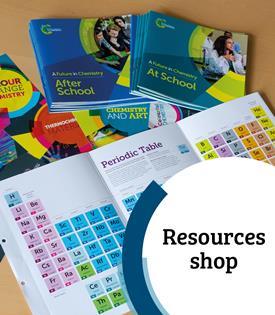Challenge your students to answer the question: are we wasting water?
This experiment is now closed and data cannot be posted to the website. You can however run a class investigation using the past resources.
Join our latest global experiment
Take charge: a global battery experiment gives learners the opportunity to build and test their own coin batteries, as well as exploring how they can help build a more sustainable future.
Past resources
All you need for trying the experiment with hydrogels.
Instructions for taking part are also available in Welsh which can be found below.
Downloads
Water - a global experiment with hydrogels: instructions
Experiment | PDF, Size 2.44 mbWater - a global experiment with hydrogels (non-YouTube) video
Video | Video, Size 306.92 mbWater - a global experiment with hydrogels: student worksheet 1
Handout | PDF, Size 0.56 mbWater - a global experiment with hydrogels: student worksheet 2
Handout | PDF, Size 0.95 mbWater - a global experiment with hydrogels: extension activities
Handout | PDF, Size 1.77 mbWater a global experiment with hydrogels water cycle worksheet
Handout | PDF, Size 1.71 mbDŵr - Arbrawf byd-eang gyda hydrogeliau (instructions in Welsh)
Experiment | PDF, Size 0.72 mb
Additional information
The Royal Society of Chemistry would like to thank Claire Scott and Ted Casey (TeachEco) the British Science Association (CREST accreditation) and Peter Borrows (CLEAPSS) for their input and advice during the development of the resource.
If you teach primary science, see the headings below to find out how to use this resource:
Skill development
Children will develop their working scientifically skills by:
- Selecting and planning the most appropriate ways to answer science questions, including:
- Finding things out using a wide range of secondary sources of information.
- Carrying out comparative and fair tests.
- Using a range of scientific equipment to take accurate and precise measurements or readings, with repeat readings where appropriate.
- Recording data and results using scientific diagrams and labels, classification keys, tables, scatter graphs, bar and line graphs.
- Drawing conclusions and raising further questions that could be investigated based on their data and observations.
Learning outcomes
Children will:
- Identify the part played by evaporation and condensation in the water cycle and associate the rate of evaporation with temperature.
Concepts supported
Children will learn:
- What the water cycle is and how it occurs.
Suggested activity use
This activity provides an opportunity for a whole-class investigation into a real-life issue. Children can work in groups to carry out each of the individual activities, or you may choose for each group to do just one experiment and feed back to the others what they discovered.
The resource gives children an opportunity to compare their results with data from experiments from around the world. Children can discuss the findings and the impact they might have.
Practical considerations
Hydrogels and other equipment will need to be provided.
Please take into account any health and safety considerations, particularly around the contents of nappies and hydrogels.


















1 Reader's comment